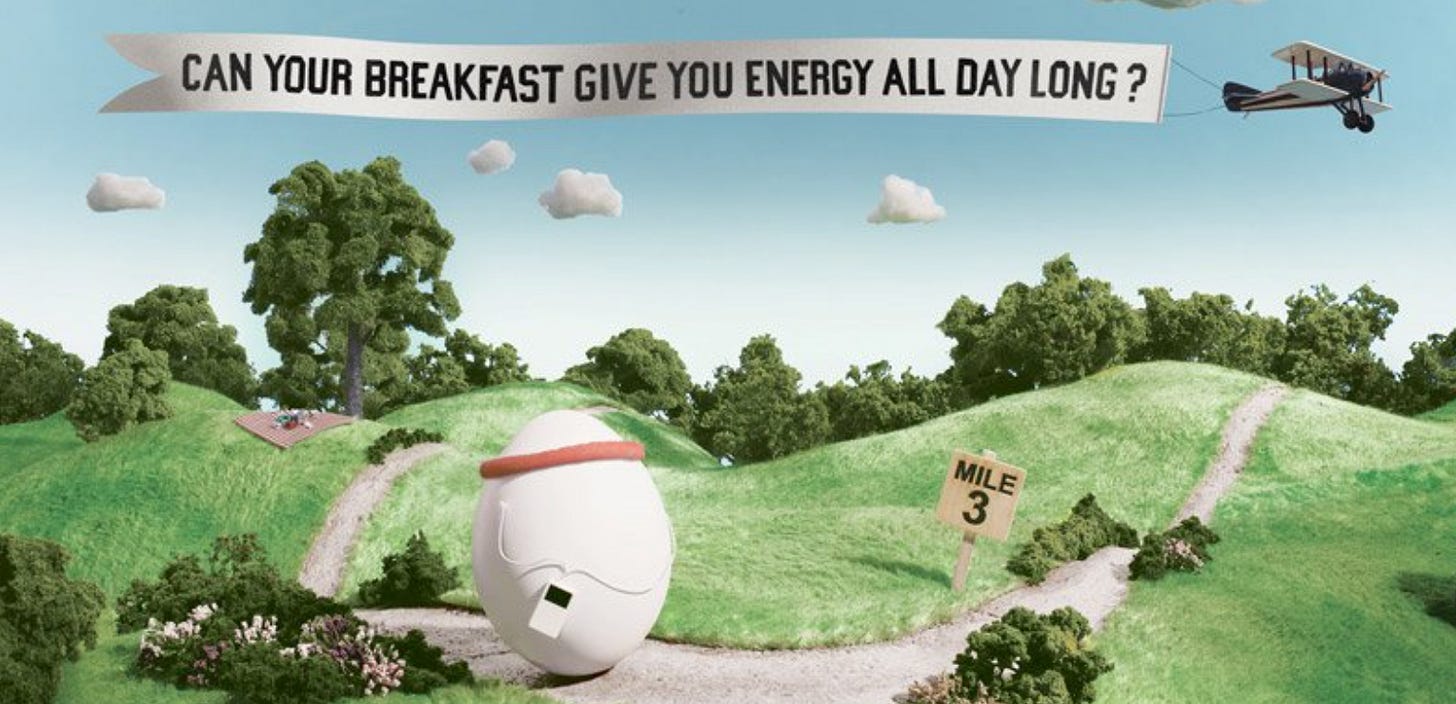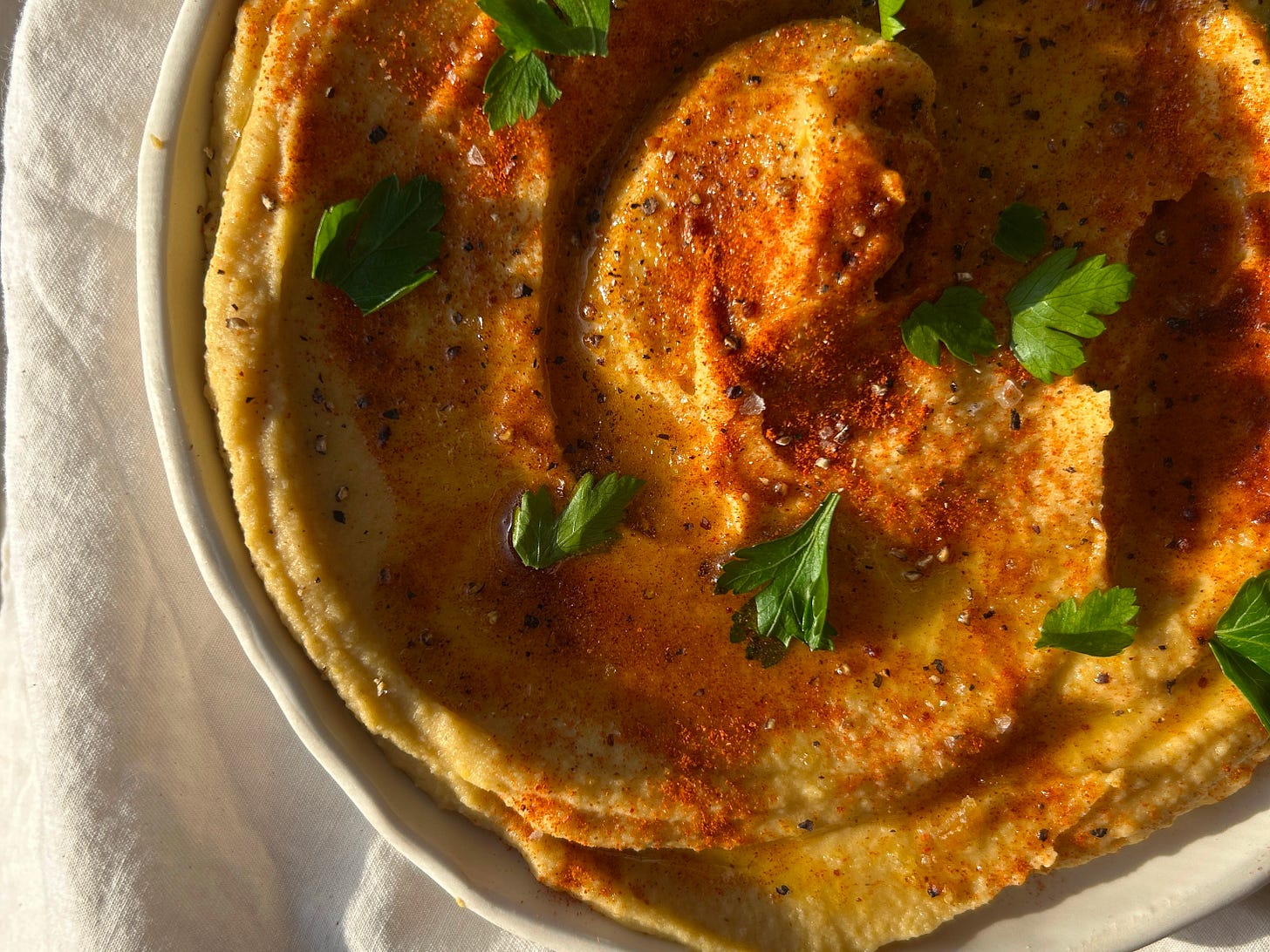The panic around eggs has set in. Yesterday morning, in my family group chat, we discussed egg prices - something I’m sure many of you have been talking about too. My mom said she was feeling nostalgic about eggs. She reflected on how we have always taken them for granted: cheap diner omelets, the $2.99/dozen she used to find on sale, and the comfort food usually in the fridge when there was nothing else to eat.
Depending on where you shop and what eggs you buy, you have certainly been paying over $5 per dozen, if not $10, depending on whether you buy the cheapest ones available or are looking for organic or a trusted brand.
Yes, it’s sad we are all shelling out more money for eggs, but what pains me is that more than 20 million egg-laying chickens in the U.S. died last quarter because of bird flu, and 148 million birds have been ordered euthanized since 2022. Beyond this heartbreak, there are the farms that lose their businesses overnight when an outbreak is reported, such as this Long Island duck farm.
I wrote about what causes avian flu outbreaks in June of last year here.
There is plenty to say about the crisis we are experiencing due to the avian flu driving egg prices up, but as I am here to illuminate your food, the more interesting question is why eggs are usually so cheap.
Our food system relies on factory farms and monocropping to produce high volumes, leading to low prices. The system is meant to work this way, and as many have argued, we rely on industrial agriculture to feed ourselves, to which I will often argue back that our food is actually too cheap.
In the case of eggs, massive factory farms are trying to crank out as many eggs as possible where the hens live on top of each other, and disease spreads. Roughly 94% of the country's hens live in highly concentrated environments where a contagious disease like bird flu can easily rip through a flock. This system results in the under $5/dozen eggs we have all grown accustomed to. So much so that when farmers market eggs or companies like Pete & Gerry’s charged $7 or $8 - that used to seem wild.
In thinking about this piece, I wanted to take another step back: Why do we eat so many eggs in the first place? What came first, the demand or the supply, or could we say…the chicken or the egg? 😊
When it comes to consumer preferences, money is usually behind things that become mainstream. Think Got Milk campaigns or the Avocado or Pistachio boards funding the promotion of these products.
I was not surprised to learn that the American Egg Board has been developing campaigns encouraging people to eat eggs since 1976. But it all started in the 1920s when a company called Beech-Nut Packing wanted to figure out how to get Americans to eat more bacon, so they reached out to Edward Bernays, known as the father of public relations (and is also Freud’s nephew). Bernays conducted consumer research and found that at the time, Americans were having very light breakfasts like a roll and OJ, so he “worked with” a doctor to recommend having a bigger breakfast of - guess what - bacon and eggs.
So here we are, a culture dependent on eggs for breakfast and accustomed to cheap groceries that we have no idea where they have come from.
Beyond this current egg crisis, we are moving toward a time when the foods we take for granted will no longer be readily available at dirt-cheap prices.
So what to do? Buy Local. Now is the perfect time to get those farmer’s market eggs. They will likely be cheaper than the grocery store, and I swear the eggs will taste better.
Gems of the Week ✨


Pink apples -are you kidding me? How is something so beautiful!! These are called Hidden Rose apples and they are available from Farm to People.
I finished Animal, Vegetable Miracle by Barbara Kingsolver. This was quite an ambitious project she took on of only eating local for one year. This book is for you if you aspire to be a homesteader or avid gardener and cook; otherwise, it’s a bit intimidating.
Death Panel - It’s been nice to see my piece on RFK last week get some great feedback, and it seems to have helped some folks better articulate their feelings on the issue. If you are ready to dive even deeper, check out this episode from Death Panel called RFK, Health Capitalism, and the Myths of Wellness.
The Last Days of American Orange Juice by Yasmin Tayag of The Atlantic
Need an easy recipe this week? This Cauliflower, Potato and White Bean Soup recipe from NYT really works for us. We don’t make it in the slow cooker; just saute the onion and garlic and then let everything simmer in the pot and blend. I highly recommend eating with Cape Cod chips.
Fava Bean Dip ✨
After slightly embarrassing myself at a cool Brooklyn restaurant, I now know that Fava Bean Dip does not actually include fava beans. In Greece, yellow split peas are called fava, so this is actually a yellow split pea puree/dip.
I made it this week and ate it with pita, and I think it holds a candle to hummus.
My cute recipe video is here, and the recipe I used was here.







I don’t really understand. You talk about food and climate in your bio but include animal products in posts Why is this? We need your help to advocate veganism. Please